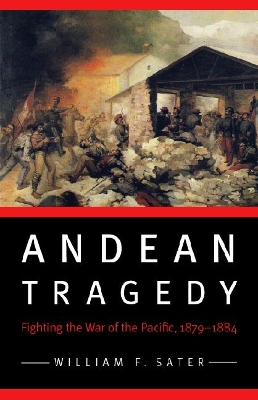Studies in War, Society, and the Military
2 total works
The year 1879 marked the beginning of one of the longest, bloodiest conflicts of nineteenth-century Latin America. The War of the Pacific pitted Peru and Bolivia against Chile in a struggle initiated over a festering border dispute. The conflict saw Chile's and Peru's armored warships vying for control of sea lanes and included one of the first examples of the use of naval torpedoes. On land, large armies using the most modern weapons-breech-loading rifles, Gatling guns, and steel-barreled artillery-clashed in battles that left thousands of men dead on the battlefields. Eventually, the warring parties revamped their respective military establishments, creating much needed, civilian-supported supply, transportation, and medical units. Chile ultimately prevailed. Bolivia lost its seacoast along with valuable nitrate and copper deposits to Chile, and Peru was forced to cede mineral rich Tarapaca and the province of Arica to the victor. Employing the primary and secondary sources of the countries involved, William F. Sater offers the definitive analysis of the conflict's naval and military campaigns. Andean Tragedy not only places the war in a crucial international context, but also explains why this devastating conflict resulted in a Chilean victory.
The Grand Illusion analyzes the impact of European military institutions on Hispanic America in general and examines the putative "Prussianization" of the Chilean army in particular. The authors focus on Chile's attempt to import and assimilate foreign military methods, doctrine, and materiel. They incorporate research from Chilean, Austrian, German, British, and American archives to offer a new interpretation of Chile's military reforms. The authors argue that the Chilean army adopted only the most superficial aspects of the German military ethos, which eventually led to the creation of a large but ineffective army. The transfer of technology and doctrine failed because German institutions and policies did not suit Chile. Political infighting, greed, and corruption further encumbered the assimilation process. The authors' findings call into question the widely accepted thesis that developed nations could, and in fact did, change the nature of the military in developing countries.

